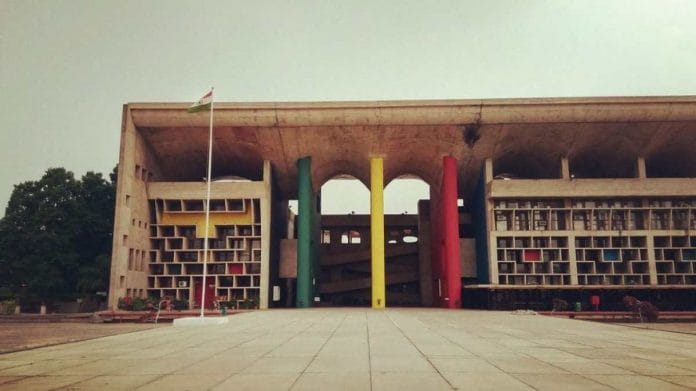It is not possible for everyone to afford a socially acceptable union and the defiance of family, community and clan becomes inevitable. Without familial support, many couples get married in small and secret ceremonies while some decide to ditch even that formality and start living together. Often this ‘disobedience’ to societal norms is considered so treacherous that the only way the family thinks it can redeem itself is by indulging in ‘honour killing’. The courts in India, especially Constitutional Courts, have always protected the rights of couples who indulge in this daredevilry, particularly against apprehended murder. But a recent judgement by the High Court of Punjab and Haryana appears to have dented the progress made towards protecting those in live-in relationships.
On 11 May 2021, the High Court of Punjab and Haryana refused to grant protection to a live-in couple, endangering their lives, on the ground that the petitioners sought a “seal of approval” on their live-in relationship in the garb of seeking protection. The court’s observation has pricked the conscience of rational society.
The past precedents give hope…
Even though pre-marital cohabitation is taboo in India, the law dealing with it has taken a progressive stance. Despite past public outrage and fervent criticism of live-in relationships, the courts have protected the rights of parties without going into the questions of morality. The “seal of approval”, in a legal sense, has already been given by the highest court of the land. Although there is no legislation directly dealing with live-in relationships, in 2013, the Supreme Court in the case of Indra Sarma v. V.K. V. Sarma had held that a live-in relationship between two heterosexual consenting adults did not lead to any offence even if perceived immoral.
In Chanmuniya v. Virendra Kumar Singh Kushwaha, the Supreme Court interpreted the application of Section 125 of the Code of Criminal Procedure (Order for maintenance of wives, children and parents) to include women in live-in relationships, in cases where the couple had been living as husband and wife for a reasonably long time. It was held that this was important to fulfil the true spirit and essence of this beneficial provision. Even in the Protection of Women from Domestic Violence Act 2005, women are protected from brutality at home if the cohabitation falls within the expression “relationship in the nature of marriage”. Inheritance rights were also granted to children born from live-in relationships in Vidyadhari v. Sukharana Bai.
Also read: Not woke on same-sex relationships, says Madras HC judge, wants ‘psycho-education’ session
…but court’s idea of morality becomes a roadblock
The instances of ‘honour killing’ in Punjab and Haryana are all too well known to mention. In the current case also, protection to life and liberty was sought when the couple, being consenting adults (19 and 22 years old) and who had been residing together for nearly a year, cited danger to life after being threatened by the woman’s family. The High Court in question gives similar protection to couples in inter-caste and inter-religion marriages on a routine basis. However, granting the same protection to a live-in couple seems to have been disagreeable with the court’s idea of morality. While being apprehensive of granting the “seal of approval” to the couple’s defiance of parental expectations and refusing to grant protection, the order implies that such threats to life can go unchecked, but a live-in relationship cannot. An overview of the Supreme Court’s approach towards live-in relationships makes it clear that it is not the court’s job to morally police two consenting adults living together. Instead, its job is to protect their right against arbitrary and illegal harm.
Orders such as the one given by the Punjab and Haryana High Court lay waste the laborious efforts of various NGOs, litigants, lawyers and the Supreme Court of India. Since these judgments are widely reported in the media, they work to endorse the criminal approach of regressive khap panchayats and furious family members. They also have a daunting effect on other couples across the country who have only the criminal justice system to protect them from harm.
When, after escaping the orthodox and life-threatening clutches of their community, the couple approached the high court in pursuit of safety, it was the court’s constitutional duty to protect their life and liberty in accordance with law, and not rely on presumed morality. This is a classic case of grave miscarriage of justice and deserves immediate intervention by the Supreme Court.
Pallvi Hooda @HoodaPallvi is a Delhi-based lawyer. Views are personal.






